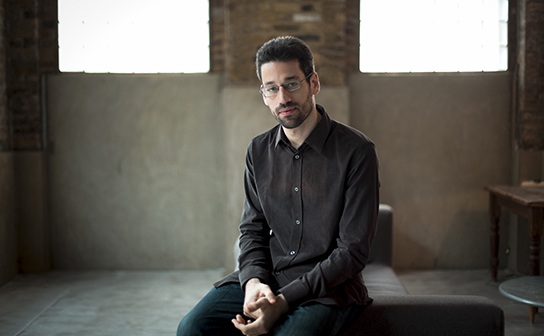Tonight’s concert is all about the Bs: Beamish, Beethoven, Brahms and Biss. The first-half consists of two piano concertos played by the American pianist, Jonathan Biss. He has commissioned five new piano concertos from various composers, each to be played alongside a particular one of the five composed by Beethoven—a novel idea, but a good one.
Tonight, we start with Scottish-based Sally Beamish’s response, in her third piano concerto entitled City Stanzas, which is paired with Beethoven’s first concerto. As its title suggests, it is a microcosm of the degrading quality of urban life in all its greed and profanity. There are a few references to the Beethoven (thundering octaves and passage work), but no direct thematic quotations.
The first movement is angry; the second a requiem for those who die alone in the environment; the last is a rondo, which does quote slightly from Beethoven. Much use is made of a drum-kit, which gives a super contrast to the rest of the orchestral playing.
Biss comes back on stage for Beethoven’s first piano concerto—a work brimming with originality (the first movement is not as one would expect). It has a long slow movement and a virtuosic finale, with Biss scampering around the keyboard effortlessly. A fine performance, and Biss is a name worth keeping an eye on.
Brahms’ fourth symphony completes the concert. Written in 1884-85, it was at first met with consternation by both critics and the public. Unlike the majesty of his first symphony, this is much more reflective, especially in the sighing tune of the first movement and the autumnal glow of the second.
The scherzo is jolly and upbeat (much use of the triangle!), and the finale is a great passacaglia: 30 variations on theme (a nod to Bach?). Peter Oundjian brings out the best from the orchestra—although it isn’t a truly special performance, it is enjoyable nonetheless. As ever, the winds and brass are superb.
